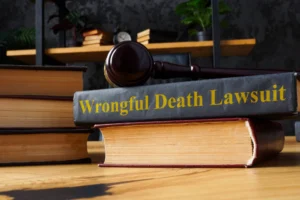When facing criminal charges, one of the first and most important distinctions to make is whether your case will be heard in federal court vs state court in Texas. This distinction has significant implications for how your case is handled, the potential penalties you face, and the strategies your legal defense team must employ.
The Texas judicial system and the federal judicial system operate independently but occasionally intersect (e.g., when certain crimes cross state lines, involve federal agencies, or are influenced by aggravating factors that trigger federal jurisdiction). For defendants, being able to make this distinction, and hiring the right attorney based on it, could be the difference between a successful defense and years in a federal prison.
Whether you’re facing charges at the state or federal level, contact a Texas criminal defense lawyer who has experience successfully defending clients in both. Call Guzman Law Firm today at (956) 516-7198 for an aggressive defense.
Federal vs Texas State Court
State courts in Texas primarily handle cases involving violations of Texas law, which include the vast majority of criminal prosecutions. These may range from DWIs and drug possession to assault, theft, and homicide. The Texas judicial system includes municipal courts, county courts, district courts, and courts of appeals. Judges are often elected, and sentencing can be more flexible, depending on the court’s docket, jury attitudes, and available diversion programs.
Federal courts, on the other hand, handle violations of federal law, which are typically prosecuted by U.S. Attorneys and investigated by federal agencies such as the FBI, DEA, or ATF. These courts deal with crimes like drug trafficking across state lines, immigration offenses, white-collar crimes like embezzlement, large-scale fraud, child pornography, and human smuggling. Judges are appointed for life, and sentencing tends to be stricter, especially due to federal sentencing guidelines.
You may be wondering, “Is most criminal law state or federal?” Statistically, state courts handle far more criminal prosecutions than federal courts. According to the National Center for State Courts, state courts manage approximately 95% of all criminal cases in the U.S., with federal courts handling the remaining 5%. In Texas, this trend holds true with state courts responsible for prosecuting most criminal matters.
Why would a case go from state to federal?
While many offenses, such as drug possession or firearms violations, start in state court, several aggravating factors can cause a case to be elevated to federal court. These factors typically involve the scope, severity, or jurisdictional reach of the crime.
Some examples include:
- Crossing state lines: Transporting drugs, firearms, or kidnapped individuals across state borders often triggers federal jurisdiction.
- Use of federal property or entities: Crimes committed on federal land (e.g., national parks or military bases) or involving federal agencies (e.g., USPS mail fraud) are typically handled by federal courts.
- Immigration offenses: Crimes involving illegal entry, visa fraud, or human smuggling across the U.S. border are prosecuted federally.
- Large-scale criminal enterprises: If an alleged offense involves multiple conspirators, organized crime, or RICO statutes, it may be treated as a federal case.
- Firearms violations: Certain weapons offenses, particularly when tied to prior felonies or trafficking, can lead to federal charges.
- Repeat offenses: Sometimes, repeat or habitual criminal behavior — especially with prior federal convictions — can draw attention from federal prosecutors.
A case may also start in state court and later be picked up by federal authorities if new evidence emerges or if the federal government chooses to assert jurisdiction. In short, the main difference between federal crimes vs state crimes is that federal crimes often involve federal agencies, federal penalties often become more severe, and the legal process in federal courts becomes much more complex.
State vs federal court: the legal process
Although both court systems uphold due process and constitutional protections, the procedures in state and federal courts differ in critical ways that impact how defendants experience the justice system.
| Texas State Court process | Federal Court process |
| Arrest and bookingArraignment and bond hearingPretrial hearings and motionsPlea bargainingTrial (bench or jury)SentencingAppeals* | Federal investigationGrand jury indictmentArrest and initial appearanceDetention hearing and bail decisionArraignment and pleaMotions and discoveryTrialSentencingAppeal** |
*Either through the Texas Court of Appeals or the Texas Court of Criminal Appeals
**Either through the U.S. Court of Appeals or the U.S. Supreme Court
In Texas, trials may occur more quickly in state courts, and judges often have greater discretion in sentencing. The state process can feel more localized, with jurors selected from the immediate community and prosecutors focused on regional concerns.
On the other hand, federal cases typically involve a more rigorous and lengthy investigation, stricter evidentiary rules, and more severe sentencing guidelines. Because federal prosecutors often have more resources and time to build a case, the defense must be strategic and deeply familiar with federal procedures.
Advantages and disadvantages of federal versus state court
From the perspective of a defendant, each court system has its advantages and drawbacks. Understanding these can help shape expectations and inform decision-making.
| Texas State Court | |
| Pros More flexible sentencing: Judges often have wider latitude. Local juries: Jurors are usually from the community, which can help in certain cases. Faster timelines: Cases may move more quickly through the system Alternative programs: Some counties offer diversion or treatment programs. | Cons Overburdened system: High caseloads can lead to rushed hearings or inconsistent outcomes. Political pressures: Elected judges may be influenced by local sentiment. Inconsistent quality of representation: Especially in court-appointed defense. |
| Federal Court | |
| Pros More standardized procedures: Clear rules for evidence, motion practice, and sentencing. Well-resourced investigations: Which can occasionally lead to exculpatory evidence. Highly trained judges and prosecutors: Offers a more professional courtroom environment. | Cons Longer sentences: Especially under mandatory minimums and sentencing guidelines. Harsher bail and pretrial detention decisions: Many federal defendants are denied bond. Limited options for diversion or treatment: Most alternatives to incarceration are rare. |
Ultimately, neither court is “better” for defendants overall; it depends on the case, the charges, and the attorney representing you. What matters most is having a Texas criminal defense lawyer who has experience in the system you’re fighting in and can help you navigate the legal terrain effectively.
Why dual-level experience is crucial for criminal proceedings
Whether your case is in state or federal court, your choice of defense attorney can make or break your outcome. But when your case involves the possibility of federal charges — or begins in state court and escalates to the federal level — it’s vital that your attorney has proven experience in both jurisdictions.
An attorney who is unfamiliar with federal court may be unprepared for:
- Federal sentencing guidelines and mandatory minimums
- Pretrial motions that could limit admissible evidence
- Federal plea negotiations, which involve U.S. Attorneys with different priorities
- Navigating the U.S. Bureau of Prisons system after sentencing
Similarly, a federal-only attorney may struggle in the more flexible and varied local court environments of Texas, where jury sentiment, local politics, and community reputation often matter.
The Guzman Law Firm has extensive experience defending clients in both federal and Texas state courts. This dual familiarity means we can anticipate strategies, respond to prosecutorial tactics, and provide informed, aggressive advocacy, no matter the courtroom.
Facing criminal charges? Call Guzman Law Firm for state and federal defense.
Being charged with a crime in Texas state court or federal court is a life-altering experience. The consequences can range from fines and probation to years of incarceration in a state prison or federal penitentiary. The procedures, pace, and penalties vary significantly between the two systems, and understanding where your case falls is the first step toward building a successful defense.
Federal charges are often more serious and complex, but even misdemeanor charges in state court can carry lasting consequences, from loss of employment to loss of civil rights. Regardless of whether you’re being tried in federal court vs. state court, one fact remains constant: you need an experienced attorney who can fight for your rights, your freedom, and your future.
At Guzman Law Firm, we are prepared to represent clients across both court systems. Whether your case involves drug trafficking, immigration violations, fraud, or violent offenses, we bring a clear-eyed strategy and tireless defense to every case we take. If you or a loved one is facing criminal charges, don’t wait for the system to define your future.
Call Guzman Law Firm at (956) 516-7198, or schedule a confidential consultation to take the first step in reclaiming your defense.
More Helpful Articles by Guzman Law Firm:
- What Is Probable Cause in a Search for Drugs or Firearms?
- Who Is Liable in a Multi-Vehicle Accident in Texas?
- What Happens if You Refuse a Breathalyzer in San Antonio?
- What Are the Consequences of Missing a Court Date in Texas?
- How Texas Law Handles Uninsured Drivers in Car Accidents





